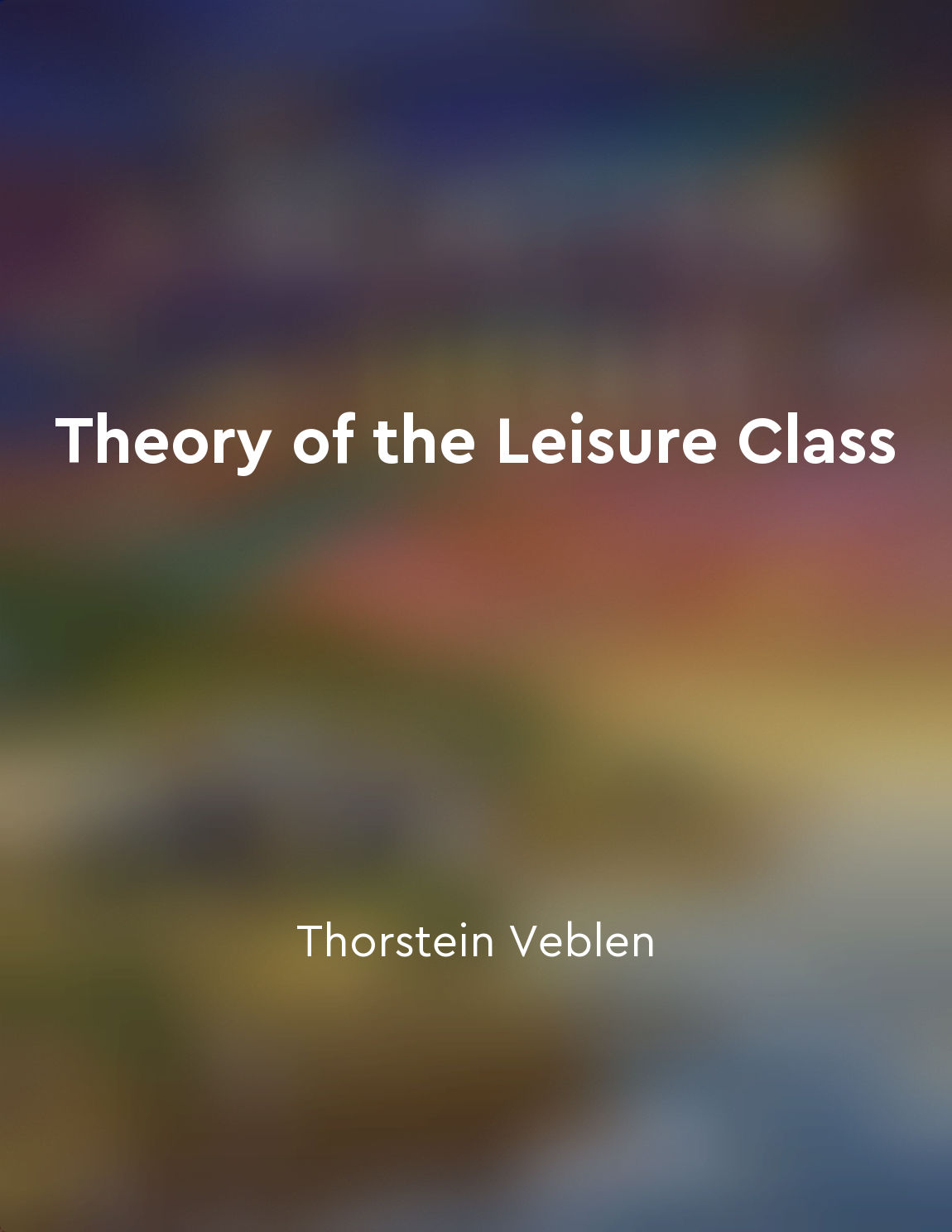Consumption patterns reflect societal values from "summary" of The Making of Economic Society by Robert L. Heilbroner,William Milberg
Consumption patterns, as we see them today, are not simply a matter of individual choice or preference. They are, rather, reflections of the values that society as a whole holds dear. This is because consumption is not solely about satisfying individual needs or desires; it is also about signaling one's identity and status to others. In this way, the things we choose to consume can say a lot about who we are and what we value. For example, the types of goods and services that are deemed valuable in a society are often those that are associated with success, power, or prestige. This is why luxury items like designer clothing, expensive cars, and high-end electronics are so highly coveted - they are seen as symbols of wealth and success. Similarly, the foods we choose to eat, the places we choose to travel, and the activities we choose to engage in can all serve as markers of our social standing and cultural values. Moreover, consumption patterns can also be influenced by larger social forces and structures. For instance, the rise of consumer culture in the 20th century was not simply a result of individual preferences; it was also driven by changes in advertising, marketing, and mass production that made consumer goods more accessible and desirable to a wider audience. In this way, consumption patterns can be shaped by broader economic, political, and cultural factors that are beyond the control of any one individual. In sum, consumption is not just about what we buy or consume; it is about what we value and how we signal those values to others. By examining the trends and patterns in consumption, we can gain insight into the underlying values and beliefs that shape our society as a whole. This is why understanding consumption patterns is crucial for understanding the dynamics of economic and social life.Similar Posts
Constraints can lead to creative solutions
Constraints are often seen as obstacles to progress. However, in reality, they can actually be the catalyst for innovative thin...

Conditioning affects behavior
One of the most powerful factors that influence behavior is conditioning. Conditioning refers to the process by which individua...
People have differing levels of risk tolerance
The concept that individuals possess varying levels of risk tolerance is a fundamental aspect of human behavior when it comes t...
Karl Marx's critiques of capitalism laid the groundwork for modern socialist thought
Karl Marx, the revolutionary German thinker, is best known for his scathing critiques of capitalism. In his view, capitalism wa...
Farewell pilgrimage
The Farewell Pilgrimage was the last and most significant pilgrimage made by the Prophet Muhammad (peace be upon him). It took ...
Promoting ecofriendly practices
The idea of promoting ecofriendly practices is at the core of the green revolution. It involves encouraging individuals, busine...

The notion of "trickledown economics" was flawed
The idea that wealth magically trickles down from the rich to the poor is not just flawed, but downright absurd. This concept, ...
Marketing automation streamlines the marketing process
Marketing automation refers to the use of software and technology to automate repetitive marketing tasks and workflows. This te...

The Leisure Class exercises Social Dominance
The members of the leisure class are the ones who shape the social structure through their conspicuous consumption and extravag...
Practice mindfulness to appreciate the present moment
To appreciate the present moment, we must practice mindfulness. This means being fully aware and engaged in what is happening r...
